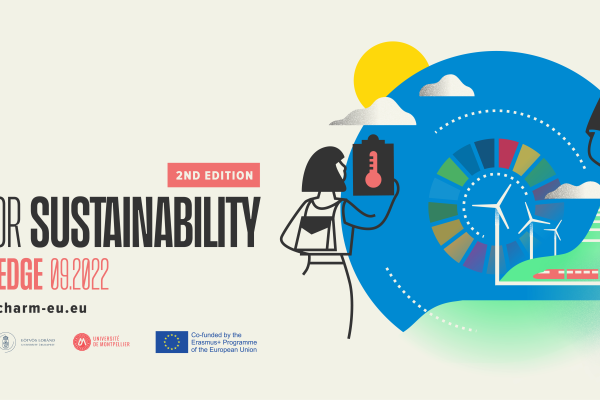CHARM-EU joint Master’s Global Challenges for Sustainability is featured in the latest issue of Nature, the world’s leading multidisciplinary science journal. The correspondence emphasizes the importance of transdisciplinary training for tackling future challenges.

“Rapid and equitable global change means that students in a wide range of disciplines must learn to synergize with researchers, international partners and extra-academic stakeholders” – highlight Michael Y. Schakelaar (UU), Quique Bassat (UB), Catherine M. Comiskey (TCD), Katalin Felvinczi (ELTE), Jan C. M. Haarhuis (UU) and Niels Bovenschen (UU), CHARM-EU colleagues and authors of the article.
The correspondence titled “Linked research hubs train students to tackle societal challenges” focuses on how CHARM-EU’s joint degree programme Global Challenges for Sustainability prepares students for transdisciplinary collaboration and creative problem-solving.
Research HUBs are physical innovation spaces centrally located in faculties with short lines of communication to researchers, professionals, societal partners and other stakeholders. This European Student Research HUB network is a new framework in higher education and opens up opportunities to teach future professionals the right skills they need for the challenges of the future. Students participating in the programme learn within an international network of research hubs comprising local scientists, experts and stakeholders. With the help and input of these research hubs, students can frame and research complex issues such as how to deal with future pandemics and gain skills crucial to deal with the challenges of the future.
Read the Nature correspondence here and learn more about which authentic sustainability challenges CHARM-EU students are working on during the third phase of the programme.